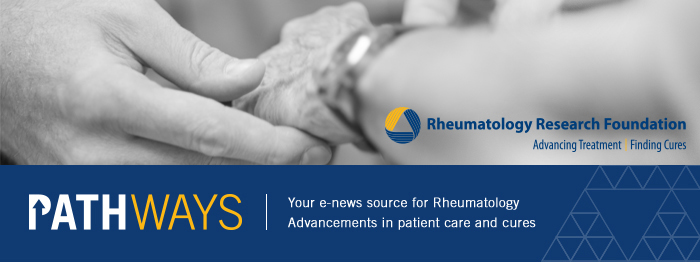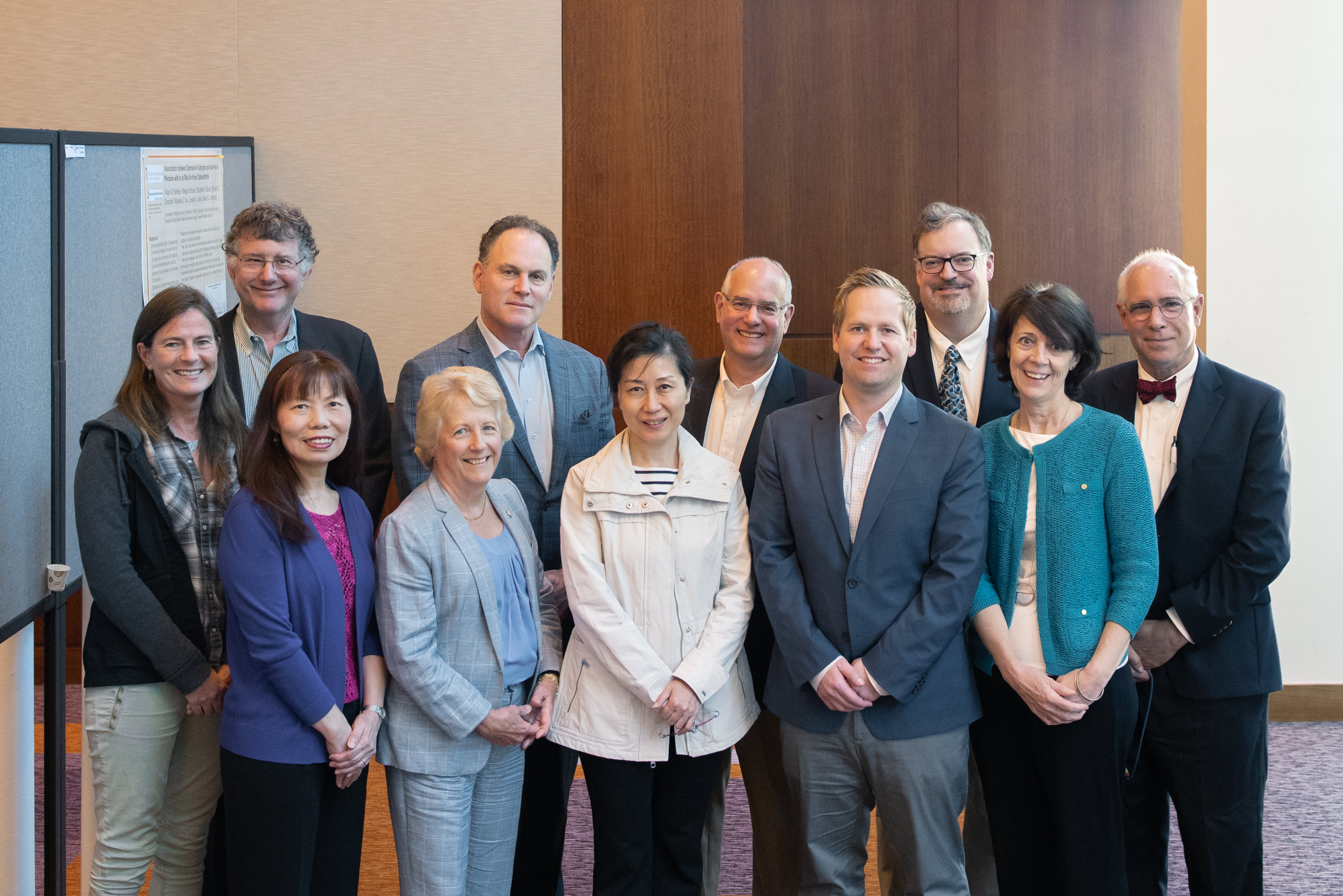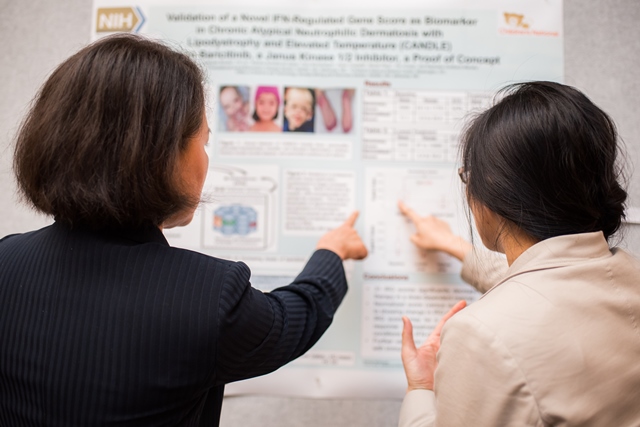Pathways

Volume 7 • Issue 6 • June 2018 • Rheumatology Research Foundation

A group of Investigators' Meeting attendees. Front row (left to right): Monica Guma, MD, PhD; Su Yao-Mao, PhD; Thasia Woodworth, MD; Yan Wang, MD, PhD; Jeff Sparks, MD, MMSc; Susana Serrate- Sztein, MD. Back row (left to right): David Markovitz, MD; Andrew Luster, PhD; Michael Brenner, MD; S. Louis Bridges, Jr., MD, PhD; James Jarvis, MD.
Annual Research Meetings Foster Collaboration and Mentorship
California sunshine greeted more than 120 attendees for the annual Investigators' Meeting and Rheumatology Research Workshop in San Francisco as they came together to share the latest advances and updates in rheumatology research.
For two days, Foundation-funded researchers, rheumatology fellows, junior faculty, medical/graduate students, and residents interested in a research career in rheumatology, shared updates on their studies, networked, exchanged ideas and collaborated on future projects to advance treatments and cures for rheumatic diseases. Attendees were abuzz, exchanging new thoughts and ideas and fueling future projects and collaborations.
Beyond providing a platform for established investigators to share updates on their research, the Investigators’ Meeting is a forum for building productive and mutually beneficial relationships with other Foundation-funded investigators. These collaborations help researchers advance their projects and bring new therapies to patients sooner rather than later.
Established rheumatology researchers like Harris Perlman, PhD presented on his study “Understanding the Role of Macrophages in the Pathogenesis of RA”. Dr. Perlman’s research seeks to define a method to understand the differential roles that synovial macrophages populations play during the various phases of RA. His team was the first to identify transcriptional signatures that are specific to each population of synovial macrophages during the peak of inflammatory arthritis in mice and to perform minimally invasive synovial tissue biopsies on RA patients with active disease. Dr. Perlman’s research could help rheumatology professionals understand the dynamics and pathways involved in the pathogenesis of RA.
Peter Nigrovic, MD shared research that is leading to a better understanding of the pathways involved in the pathogenesis of RA. Dr. Nigrovic’s research focuses on understanding mechanisms of inflammatory arthritis, using both human samples and mouse models. His study “Synovial T Resident Memory Cells in Arthritis” examines recurrent, joint-specific inflammation in adults and children and seeks to characterize the roll T resident memory cells (TRM) play in recurrent, site-specific disease. Dr. Nigrovic discussed his progress characterizing TRM from human joint specimens as well as confirming the role TRM play in recurrent, site-specific disease through the use of a previously developed animal model.
Other presentations demonstrated a variety of topics, all of which were aimed to help improve treatments and care for people living with rheumatic diseases. Teresa Tarrant, MD presented updates on a novel technology that could advance treatment options for patients with RA. By using directed laser light on inflamed joints, this novel treatment could minimize the risks and side effects of current anti-inflammatory and immunosuppressive treatments for RA patients. The technology delivers RA medication directly to the joint using wavelengths of light to release the medication. Ultimately, this treatment could facilitate the selective delivery of medications directly to the joint; specifically, red blood cells containing implanted molecular devices (Phototherapeutic RBCs).
With new discoveries leading to more treatment options for patients, the combined impact that the attendees have in improving the lives of patients with rheumatic disease is profound.
Educating the Next Generation of Rheumatology Professionals

Each year, the ACR hosts the Rheumatology Research Workshop in conjunction with the Investigators’ Meeting. The workshop is designed for rheumatology fellows, junior faculty, medical/graduate students, and residents interested in learning more about how to succeed in a research career for rheumatology.
The meeting includes scientific lectures, oral abstract presentations, poster sessions and ample opportunity for eager young investigators to network with established senior investigators and to learn the nuances of successful grantsmanship and career development. Specialized tracks for Early and Advanced Investigators ensure attendees receive relevant information that is both applicable and appropriate for their current career stages.
Keynote speaker, Timothy Niewold, MD, welcomed the group of eager researchers and shared his perspective on the personal career path of a successful investigator. Each session was designed to help early career investigators advance their careers by providing opportunities for them to improve presentation skills, obtain one-on-one advice from leading researchers, and collaborate in an informal setting.
The results gained from years of supporting innovative research were evident at this year’s meetings. Together, the ACR and Foundation are ensuring a bright future for patients.